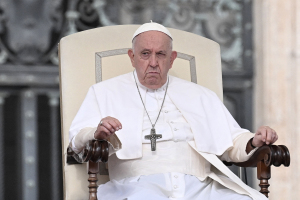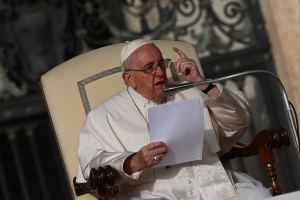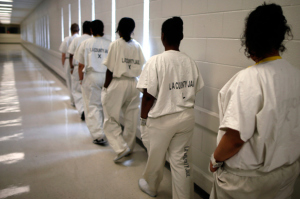Christian family suffering 'living hell' after arrests on false charges of 'conversion' at son's birthday party
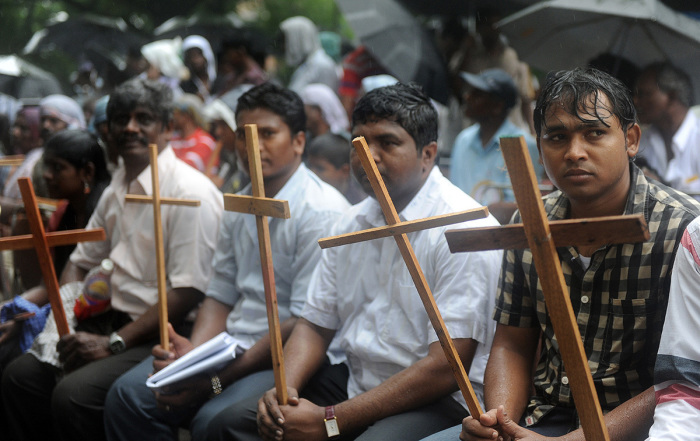
NEW DELHI, India — A Christian mother and her family in northern India have suffered assaults and threats since she and others were arrested from her son’s birthday party on false accusations of fraudulent conversion, her husband said.
“Our lives have turned into a living hell as we struggle to survive each day with our 7-year-old son,” Mahendra Kumar told Morning Star News. “We face threats every day and do not know what will happen tomorrow.”
Kumar’s wife, Indrakla, was one of six women, four of them Christians, arrested on charges of fraudulent conversion based on a complaint of members of the Hindu extremist Vishwa Hindu Parishad (World Hindu Council) on July 30 in Maharajganj, Azamgarh District, Uttar Pradesh state.
“We have been targeted several more times after we filed a counter-complaint regarding the harassment and attacks that we have faced,” Indrakla told Morning Star News.
The six women were arrested when Hindu extremists intruded into a large birthday celebration for the couple’s only son on July 30 in Maharajganj District’s Bishunpura village, accusing Christians of using the event as a cover to fraudulently convert people. Those arrested remained in jail for more than a month before being bailed out.
Since then, on two occasions assailants deliberately rammed a car into Kumar while he was on his motorbike with his son, and the family has received several threats, he said.
On Oct. 21 Kumar and his wife awoke at 2 a.m. to the sound of several people banging on their door.
After Indrakla, who goes by a single name, was released on bail on Sept. 1, the family opted not to return to their rented home upon learning that Hindu extremists were planning to attack them. When they returned in October, the threats and harassment continued.
Jailed
Indrakla was getting her son ready for the party at about 1:30 p.m. on July 30 while three Christian women sang worship songs in an area near the house under a tent cover, she said.
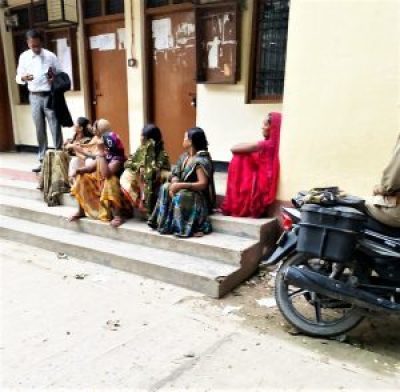
The family had invited around 600 people, including 300 church members. About 150 guests had arrived when someone informed Indrakla that a group of men had arrived, arguing and objecting to the gathering.
When Indrakla told the intruders, members of the VHP, that they were gathered only to celebrate her son’s birthday, they accused her of luring people to convert under the guise of the party. Police soon arrived, and in their presence the VHP members continued to harass her and her husband, she said.
“I stepped forward and tried to reason with them that it was my son’s birthday, and if there is nothing wrong with Hindus performing Hindu worship during their family birthday celebrations, what is wrong if we sing Christian choruses and pray before we eat?” Indrakla said.
The Hindu extremists refused to heed or answer her, she said.
“The atmosphere of celebration soon changed into despair as the police and Hindu extremists denigrated us,” Indrakla said. “They termed our birthday celebration as a ceremony for luring Dalit masses into becoming Christians.”
Dalits have historically been regarded as “untouchable,” lower than and thus outside the lowest level in the Hindu caste hierarchy.
Police arrested Indrakla and three other Christians — identified only as Savita, Anita and Sadhana — and the owners of the house, identified as Subhagi Devi and Sunita, two women who are not Christians.
All six were taken to the Maharajganj police station, where officers tried to pressure Indrakla into confessing that she distributed Christian literature, she said.
“I said, ‘I don’t have any literature, and neither do I distribute any literature,’” Indrakla said.
One of the two landladies told police that they were witnesses to the birthday party and that no form of conversion was taking place.
Officers told the six women they would release them by evening, but instead they were charged on a complaint of Ashutosh Singh, block president of the VHP, with “provocation and criminal intimidation” and, under the Uttar Pradesh Prohibition of Unlawful Conversion of Religion Act 2021, with “unlawful conversion from one religion to another by misrepresentation, force, undue influence, coercion, allurement or by any fraudulent means,” in First Information Report No. 286.
The arrested women were transferred to the Azamgarh police station that night, and the next morning, July 31, they appeared before a special lower court, as it was a Sunday. They were denied bail and sent to Azamgarh jail.
Forced conversion is punishable by imprisonment of one to five years with a minimum fine of $181 (15,000 rupees), and three to 10 years of prison for the conversion of minors and women from the Scheduled Caste/Scheduled Tribe community.
One of the landladies and Savita and Anita were released on Aug. 30, while Sadhana, Indrakla and the other landlady were released on Sept. 1.
“The ground reality is that under the garb of the allegation of forced conversions, people are being targeted by right-wing fanatic organizations being backed by the government to gain popularity or benefit politically,” the attorney representing the women, Munish Chandra, told local media outlet The Wire.
Attacks
While his wife was in jail, Kumar and their son had taken refuge at the home of Indrakla’s brother. On the way back from an Aug. 16 court hearing for the six women, a car crashed into the motorbike on which Kumar, his son and sister-in-law were riding.
“Thankfully, none of us were hurt in that accident,” Kumar said.
After the next hearing on Aug. 24, again a car rammed into his motorbike. Thrown onto the road from the impact, Kumar and his son sustained leg injuries, his sister-in-law several internal injuries, and her son several bruises.
“I am sure we were attacked by people sent by the complainant,” Kumar told Morning Star News. “It cannot be a coincidence that we are hit by a car on both the court hearings in the same way.”
The six women were granted bail at the Aug. 24 hearing, though they were not released until a week later, he said.
The cordial relations Indrakla had with those in her community before the July 30 incident have chilled since her arrest and jailing, she said.
“The community that we lived in have all suddenly turned their faces against us,” she said. “They are behaving as if we are their enemies. They say that we indulge in converting people.”
The landlords have been pressuring Kumar to vacate the house to spare them further trouble, and his extended family members have shunned him, he said.
“They have flatly refused to shelter us,” he said. “They say that till our case is settled, they will have nothing to do with us.”
Financial setback
Kumar, a street vendor of cookies and candies, borrowed various resources from neighbors and other villagers to provide a “grand celebration for their son,” said their Pastor Santosh Kumar.
An emotional Indrakla said much money and planning went into preparing the birthday gathering where intruders set into motion events that have hurt their income. Due to the threats from Hindu extremists, Kumar cannot leave home and resume work.
“We borrowed utensils, harmonium, mic and all the items required,” she said. “We rented stuff from a tent house and have not paid for any of that yet.”
The food prepared for more than 600 people went to waste, and there was no one to tend to household affairs while Indrakla was in custody. Amid the chaos, some of the borrowed or rented items were stolen, along with some of their own possessions, Indrakla said.
“We have people coming and asking us every day to either return their things or pay for it,” Indrakla said. “Where do I get the money from to pay them?”
Counter case
On Sept. 4, Kumar and Indrakla filed a private court complaint under the Code of Criminal Procedure over the attack and harassment they have faced.
They have also filed complaints to Scheduled Caste-Scheduled Tribe commission offices in New Delhi and Lucknow, as well as to the district superintendent of police, said Dinnanath Jaiswar, a Christian leader and social activist in Uttar Pradesh.
“Since these Hindu extremists came to know about the counter-complaint, they have targeted the family many times,” Jaiswar told Morning Star News. “Now the court has directed the police to investigate the threats and intimidation of the victims.”
Jaiswar noted that Indrakla and the other women are low-status Dalits, while the assailants are upper-caste Hindus.
“It’s a prestige issue for them,” he said. “They cannot digest how these Dalits have exercised their legal rights against the upper caste. For them, the reality has been that the law is there for the upper castes to be used against the lower-caste people. They think they are the higher strata of society and the government belongs to them.”
Christian families who are Dalits thus face double discrimination for being both low status and followers of Christ, he said.
Various entities have designated Uttar Pradesh as the state in India where Christians experience the most persecution. Christians make up only 0.18% of the state’s population, according to the 2011 Census, or 356,000 Christians in the highly populated state.
The hostile tone of the National Democratic Alliance government, led by the Hindu nationalist Bharatiya Janata Party, against non-Hindus, has emboldened Hindu extremists in several parts of the country to attack Christians since Prime Minister Narendra Modi took power in May 2014, religious rights advocates say.
India ranked 10th on Christian support organization Open Doors’ 2022 World Watch List of the countries where it is most difficult to be a Christian, as it was in 2021. The country was 31st in 2013, but its position worsened after Modi came to power.
Morning Star News is the only independent news service focusing exclusively on the persecution of Christians. The nonprofit's mission is to provide complete, reliable, even-handed news in order to empower those in the free world to help persecuted Christians, and to encourage persecuted Christians by informing them that they are not alone in their suffering.
















